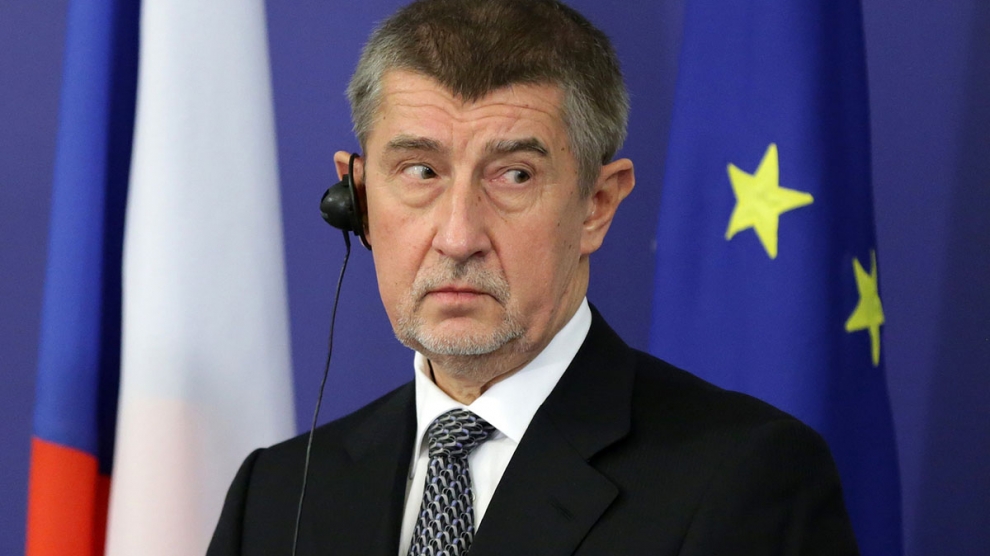Compared to other Central European countries, Czechs are not used to joining street protests in great numbers. So the fact that ten of thousands of people took part in demonstrations on May 21 and June 4 in Prague’s symbolic Wenceslas Square should be taken seriously.
The protests, organised by the Million Moments for Democracy association, have been directed against prime minister Andrej Babiš and his cabinet reshuffle which included a change of justice minister. This change came just one day after Czech police proposed filing charges against the prime minister for the misuse of EU funds and was strongly interpreted as an attempt to sweep the investigation under the carpet. The protesters view the current situation as an attack against the independence of the judiciary and public prosecutors see it as similar to what has happened in Poland and Hungary.
Furthermore, a few days before the latest protest took place, the preliminary position of the European Commission regarding the alleged conflict of interest between the prime minister and his company Agrofert was published in Czech newspapers. Because of the conflict of interest, the Czech Republic will probably have to return more than 400 million Czech crowns (15 million euros) to the EU.
In many ways Prime Minister Babiš is a symbol and a product of the decadence of Czech politics, with trust in traditional parties, and the morality and ethics of politicians having almost evaporated. He is one of a number of rival oligarchs competing for influence on a political scene that it witnessing a deep crisis of the traditional political parties, the Civic Democrats and Social Democrats.
Paradoxically, the same European subsidies that the prime minister is accused of misusing have long been a means for the traditional parties to create regional godfathers. These regionally based factions gained the support of their founding fathers and former leaders who became presidents – Václav Klaus (2003-2013) and Miloš Zeman (since 2013). Both presidents tried to move the system more to a presidential style of government to fulfil their own political strategies. Corruption scandals became a part of daily politics and culminated in 2013 when special police forces were forced to intervene in the office of the government.
Andrej Babiš used this opportunity to create a new business model party and succeeded in gaining a seat in parliament and became part of a cabinet coalition in 2013. Smart political marketing that interpreted the police investigation facing him as a plot then brought his party victory in 2017. The social base of his support is now mainly based on those who sell betrayed by the traditional parties, the socially deprived parts of society whose situation has been continuously ignored by previous cabinets (those in receipt of low pensions, teachers earning low salaries and the civil service) who view him as a guarantor of their well-being and are afraid of the return to power of previous right wing parties.
On the other hand, his political position is rather weak. He is dependent on the president, who controls the cabinet from backstage with his own “presidential” ministers and deputy ministers, and can use his influence on radical left (communist) and radical right (populist) parties in parliament. And, according the constitution, the president can stop any investigation (by offering a pardon) as long as his decision is signed by the prime minister or any other minister authorised to do so. This can be viewed as another reason for the change of justice minister.
It is this situation that has brought about the rather strong mobilization of the Czech public. The Million Moments for Democracy association was formed after parliamentary elections in 2017 with the goal of supporting and cultivating democratic culture, civic engagement and public discussion in the Czech Republic. Organised more or less as a petition movement against Prime Minister Babiš, mainly with moral and ethical arguments (he was a former communist and collaborator with the secret police), it then started to get stronger support in the spring of 2019 and that support has grown even more since the change of justice minister.
The current strategy seems to be based on the understanding that those activities cannot be only Prague-oriented and that is necessary to get the support of the regions that traditionally have different political preferences. In fact, activities are alternatively organised in Prague with the participation of public from the regions (transported in by bus) that generate a stronger impression for outsiders. The demonstration on May 21 in Prague, with tens of thousands of participants, was followed by hundreds of meetings outside of Prague on May 28, and then back in Prague on June 4.
This mobilisation probably did prevent the scenario of radical personnel changes in public prosecutor positions and provoked broader interest about the independence of the justice system and the principles of the rule of law. The question is whether these topics are sufficient in a country with so many problems. On the other hand the broadening of the topics can narrow support. To sustain broader public support, it needs also to stay away from current politicians, but institutional changes are not possible outside of politics.
Even if the prime minister does resign, there is the unpredictable behaviour of the president to consider. He would probably form a cabinet to govern even without the support of parliament. Early elections can only be approved by a three-fifths majority in parliament and these votes are not available now. Maybe, however the protesters’ main challenge is the timing – the coming holiday season could see the number of demonstrators fall.

